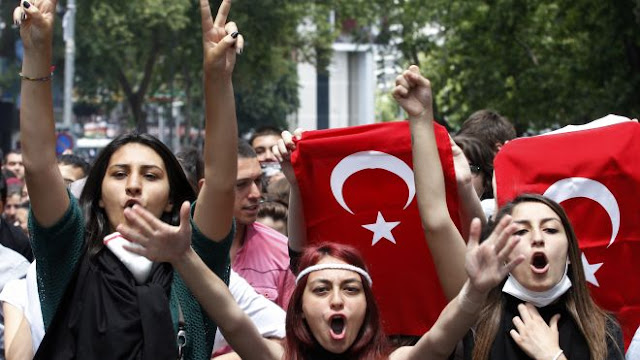Short of a Muslim
embrace of the modern, there’s no hope for the future
From the heights
of Gibraltar, you can see Africa about nine miles away to the south — and gaze eastward
on the seemingly endless Mediterranean, which stretches 1,500 miles to Asia
beyond. Mare Nostrum, “our sea,” the Romans called the deep blue waters that
allowed Rome to unite Asia, Africa and Europe for half a millennium under a
single prosperous, globalized civilization.
Yet the Mediterranean
has not always proved history’s incubator of great civilizations — Greek,
Roman, Byzantine, Ottoman, Florentine and Venetian. Sometimes, the ancient
“Pillars of Hercules” at the narrow mouth of the Mediterranean here at Gibraltar marked not so much a gateway to progress and prosperity as a cultural
and commercial cul-de-sac.
With the rise of
the Ottoman Empire, and before the construction of the Suez Canal, the old classical city-state powerhouses in Italy and Greece faded from history, as the Mediterranean became more a museum than a
catalyst of global change. In contrast, the Reformation and Enlightenment
energized Northern European culture, safely distant from the exhausting
frontline Mediterranean wars with Islam.
By the early 17th
century, Northern Europeans more easily and safely reached the rich eastern
markets of China and India by maritime routes around Africa. The discovery of the New World
further shifted wealth and cultural dynamism out of the Mediterranean.
For a while, the
Mediterranean seemed to roar back after World War II. Huge deposits of
petroleum and natural gas were found in North Africa. The Suez Canal was a shortcut to the newly opulent and strategically vital Persian
Gulf. With the unification of Europe, and ongoing decolonization of Africa and
the Middle East, there was the promise of a new, resource-rich, democratic and
commercially interconnected Mediterranean.
Not now. The Arab
Spring has brought chaos to almost all of North Africa. The bloodbath in Syria threatens to escalate into something like the Spanish Civil War —
sucking in Lebanese militias, Iranian mercenaries, Turkey, the Sunni sheikdoms, Israel and the Palestinians, along with surrogate arms suppliers such as China, Europe, Russia and the United States.




.jpg)

.jpg)
.png)


.png)


.jpg)




